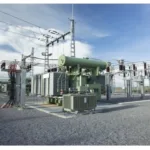New Delhi, In a significant development, India is poised to ink a crucial deal encompassing the clean economy and fair economy pillars within the US-led Indo-Pacific Economic Framework (IPEF). Officials indicate that the law ministry is currently scrutinizing proposals for these pillars, with expectations of completing the legal vetting process by February.
The clean economy aspect of the IPEF aims to foster collaboration among member nations in research, development, and commercialization of clean energy and climate-friendly technologies. Simultaneously, the fair economy deal seeks to reinforce anti-corruption and tax measures, enhancing trade and investment among IPEF economies.
Notably, India, in November, signed a supply chain resilience agreement (Pillar II) with the US and other members, marking a significant step towards reducing dependency on China and mitigating economic risks from supply chain disruptions. However, India has yet to commit to the trade pillar, seeking further clarity on its alignment with national interests.
Legal scrutiny of the clean and fair economy pillars is underway through a process known as “legal scrubbing,” where participating countries review proposals from a legal perspective. Once approved, the commerce ministry plans to present a cabinet note in consultation with relevant ministries, including finance and power.
Abhash Kumar, an assistant professor of economics at Delhi University, highlighted the potential benefits of the IPEF framework, stating that it will enhance inclusiveness, competitiveness, and promote economic growth through investment. The IPEF, launched in Tokyo in May 2022, includes nations such as Australia, Japan, Singapore, and others in the Indo-Pacific region.







